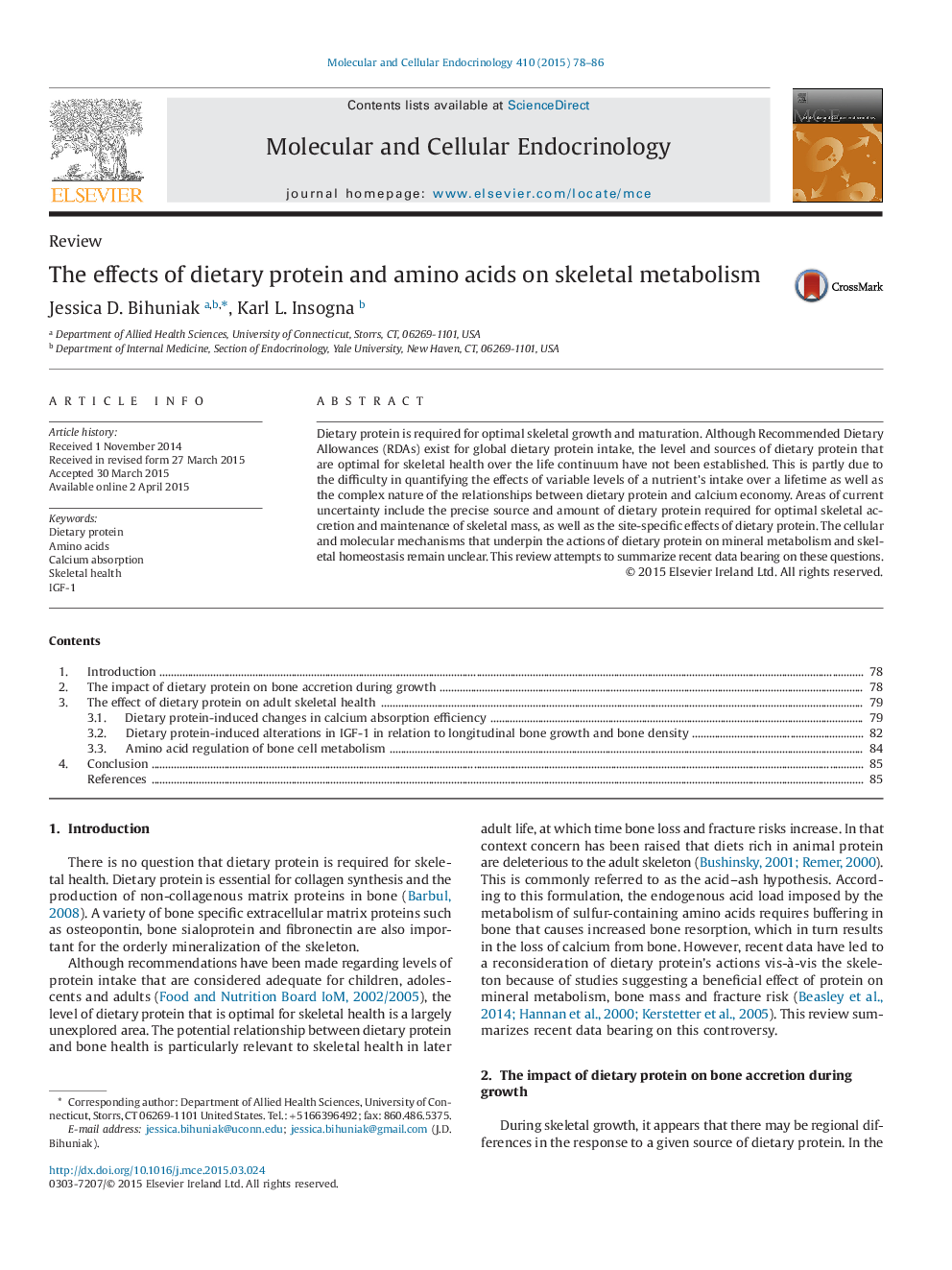| Article ID | Journal | Published Year | Pages | File Type |
|---|---|---|---|---|
| 2195687 | Molecular and Cellular Endocrinology | 2015 | 9 Pages |
•Dietary protein increases intestinal calcium absorption and circulating levels of IGF-1.•Effects of dietary protein on bone are likely source specific.•Amino acids impact intestinal calcium absorption, bone cells and the GH/IGF-1 axis.
Dietary protein is required for optimal skeletal growth and maturation. Although Recommended Dietary Allowances (RDAs) exist for global dietary protein intake, the level and sources of dietary protein that are optimal for skeletal health over the life continuum have not been established. This is partly due to the difficulty in quantifying the effects of variable levels of a nutrient's intake over a lifetime as well as the complex nature of the relationships between dietary protein and calcium economy. Areas of current uncertainty include the precise source and amount of dietary protein required for optimal skeletal accretion and maintenance of skeletal mass, as well as the site-specific effects of dietary protein. The cellular and molecular mechanisms that underpin the actions of dietary protein on mineral metabolism and skeletal homeostasis remain unclear. This review attempts to summarize recent data bearing on these questions.
